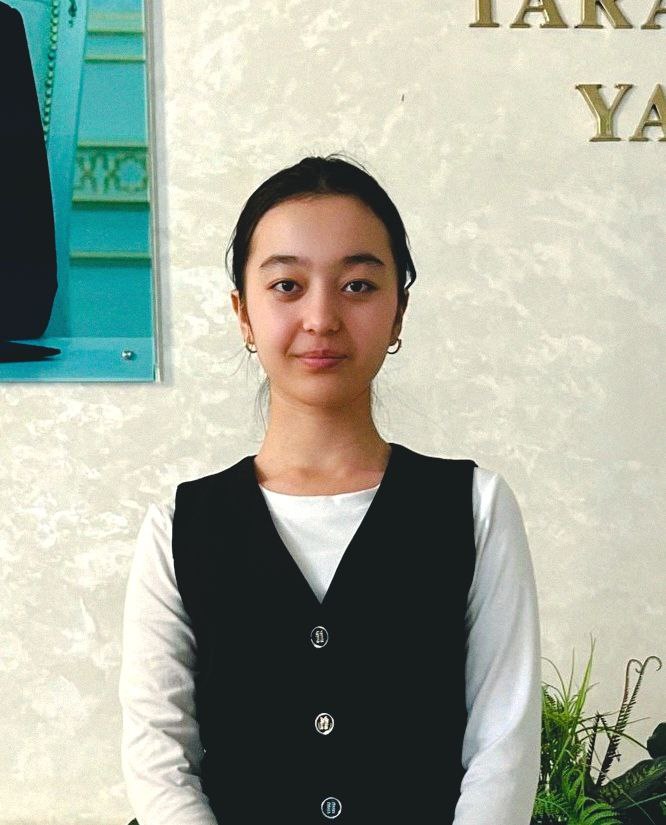
INVESTIGATING THE EFFECTIVENESS OF BLENDED LEARNING IN TEACHING ENGLISH AS A FOREIGN LANGUAGE
Turdimuradova Zulfera Sattor qizi
UzSWLU, Student
ANNOTATION
This study investigates the effectiveness of blended learning in teaching English as a Foreign Language (EFL). Blended learning refers to the integration of traditional face-to-face instruction with online learning activities, creating a flexible and supportive learning environment. The purpose of this research is to examine how this approach influences students’ language proficiency, motivation, and engagement in the learning process. The study focuses on the development of the four essential language skills: speaking, listening, reading, and writing. It also examines the role of digital technologies in promoting learner autonomy, participation, and independent learning. Blended learning provides students with more opportunities to access learning materials and practice English both inside and outside the classroom. The findings are expected to show that blended learning improves students’ academic performance and motivation. This research may contribute to the improvement of modern teaching methods and support the effective use of blended learning in EFL education.
Keywords: Blended learning, English as a Foreign Language (EFL), teaching methods, language skills, online learning, face-to-face instruction, student motivation, learner engagement, educational technology.
Introduction
In the modern educational environment, the teaching of English as a Foreign Language (EFL) has undergone significant changes due to the rapid development of information and communication technologies. English plays a crucial role in global communication, academic success, and professional development. Therefore, educators are expected to apply effective and innovative teaching methods that improve students’ language skills and enhance their learning experience. Traditional teaching methods, which mainly focus on face-to-face instruction, may not fully address the needs of contemporary learners who require flexibility, interaction, and access to digital learning resources.
Blended learning has emerged as an effective approach that combines classroom instruction with online learning activities. This method allows students to access educational materials, participate in online tasks, and practice language skills beyond the classroom. It promotes learner autonomy, increases motivation, and creates a more student-centered learning environment. In addition, blended learning provides opportunities for personalized learning and continuous feedback.
The purpose of this study is to investigate the effectiveness of blended learning in teaching English as a Foreign Language. This research examines how blended learning influences students’ language development, engagement, and academic performance. The findings of this study may help improve teaching practices and support the integration of blended learning in EFL education.
Main body
1.Theoretical Background of Blended Learning
Blended learning is defined as an instructional approach that integrates traditional face-to-face classroom teaching with online learning activities. It is based on the idea that combining different learning environments can enhance the overall educational experience. In the context of English as a Foreign Language (EFL), blended learning provides students with opportunities to engage in both direct interaction with teachers and independent study through digital platforms.
This approach is grounded in student-centered learning theory, which emphasizes active participation, collaboration, and learner autonomy. By integrating online resources such as videos, interactive exercises, and discussion forums, blended learning extends the learning process beyond the physical classroom. As a result, students can access materials repeatedly and learn at their own pace, which supports deeper understanding and long-term retention of language skills.
2. Impact of Blended Learning on Language Skill Development
Blended learning has a significant impact on the development of the four primary language skills: speaking, listening, reading, and writing. In terms of speaking, blended learning encourages both in-class communication and online interaction. Students may participate in classroom discussions while also completing virtual speaking tasks or recorded presentations. This dual practice increases confidence and fluency. Listening skills benefit from access to multimedia materials, including audio recordings and video lectures. Online resources allow students to replay content multiple times, improving comprehension and pronunciation awareness. Reading skills are strengthened through exposure to digital texts, articles, and interactive reading tasks. Online environments often provide vocabulary support and comprehension exercises that enhance understanding. Writing skills are developed through online assignments, forums, and collaborative tasks. Digital platforms enable teachers to provide immediate feedback, which helps students recognize and correct their mistakes effectively. Overall, blended learning creates more frequent and varied opportunities for practicing language skills compared to traditional instruction alone.
3. Advantages of Blended Learning in EFL Education
One of the major advantages of blended learning is flexibility. Students can access materials at convenient times, which allows them to manage their learning process more independently. This flexibility supports differentiated instruction and addresses individual learning needs. Another important benefit is increased motivation and engagement. The use of technology, multimedia tools, and interactive activities makes lessons more dynamic and appealing. Modern learners are generally familiar with digital environments, and incorporating technology into language learning can increase their interest and participation. Blended learning also promotes learner autonomy. Students take greater responsibility for completing tasks, organizing their time, and monitoring their progress. This independence is essential for successful foreign language acquisition. Furthermore, blended learning enhances communication between teachers and students. Online platforms enable continuous feedback, additional explanations, and personalized support, contributing to improved academic performance.
4. Challenges and Considerations
Despite its advantages, blended learning presents certain challenges. Access to reliable internet and technological devices remains a significant issue in some educational contexts. Without proper infrastructure, the effectiveness of blended learning may be limited. Additionally, both teachers and students may require training to use digital tools effectively. Lack of digital competence can reduce the potential benefits of this approach. Teachers must carefully design lessons to ensure a balanced integration of online and face-to-face components. Time management is another important consideration. Since blended learning involves independent study, students must demonstrate responsibility and self-discipline. Without proper guidance, some learners may struggle to complete online tasks consistently. Time management is another important consideration. Since blended learning involves independent study, students must demonstrate responsibility and self-discipline. Without proper guidance, some learners may struggle to complete online tasks consistently. Therefore, successful implementation of blended learning requires institutional support, teacher preparation, and structured planning.
Conclusion
In conclusion, blended learning has proven to be an effective and innovative approach in teaching English as a Foreign Language. By combining traditional face-to-face instruction with online learning activities, this method creates a flexible and student-centered learning environment. It provides learners with more opportunities to practice and develop their speaking, listening, reading, and writing skills through both classroom interaction and digital resources.The study shows that blended learning increases student motivation, engagement, and autonomy. Students become more active participants in the learning process and take greater responsibility for their own progress. In addition, the use of digital tools allows teachers to provide continuous feedback and support, which contributes to improved academic performance. However, the successful implementation of blended learning requires proper technological infrastructure, teacher training, and student readiness. Despite these challenges, blended learning offers significant advantages and has the potential to improve the quality of English language teaching. Therefore, it can be considered an effective and valuable method in modern EFL education.
Keywords: Blended learning, English as a Foreign Language (EFL), teaching methods, language skills, online learning, face-to-face instruction, student motivation, learner engagement, educational technology.
References:
Garrison, D. R., & Vaughan, N. D. (2008). Blended learning in higher education: Framework, principles, and guidelines. Jossey-Bass.
Bonk, C. J., & Graham, C. R. (2006). The handbook of blended learning: Global perspectives, local designs. Pfeiffer.
Harmer, J. (2007). How to teach English (3rd ed.). Pearson Longman.
Ellis, R. (2015). Second language learning and language teaching (2nd ed.). Oxford University Press.
Chapelle, C. A. (2003). English language learning and technology: Lectures on applied linguistics in the age of information and communication technology. John Benjamins.
Salmon, G. (2013). E-moderating: The key to online teaching and learning (3rd ed.). Routledge.
Dziuban, C., Moskal, P., & Hartman, J. (2018). Blended learning: Research perspectives, volume 2. Routledge.
Alqahtani, A. (2020). The effectiveness of blended learning in English language teaching: A meta-analysis. Journal of Educational Technology & Society, 23(2), 128–143.
Bicen, H., & Kocakoyun, S. (2021). Blended learning in English as a foreign language (EFL): Students’ perceptions and outcomes. Computer Assisted Language Learning, 34(4), 376–399.
Darab, B., & Montazeri, M. (2022). The role of blended learning in improving language skills: Evidence from higher education. International Journal of Emerging Technologies in Learning, 17(3), 45–55.
Zulfera Turdimurodova was born March 28, 2008, in Uzbekistan. She is currently a first-year student majoring in English Philology at Uzbekistan State World Languages University. As a university student, Zulfera demonstrates a strong sense of responsibility, academic discipline, and dedication to her field of study. She is deeply committed to developing her linguistic competence, analytical thinking, and professional skills. Through consistent effort and active learning, she strives to strengthen both her theoretical knowledge and practical abilities in English language and philology. Zulfera values continuous self-improvement, intellectual growth, and ethical professionalism. Her long-term goal is to become a highly qualified specialist in her field and to contribute meaningfully to society through education, knowledge, and professional excellence.

